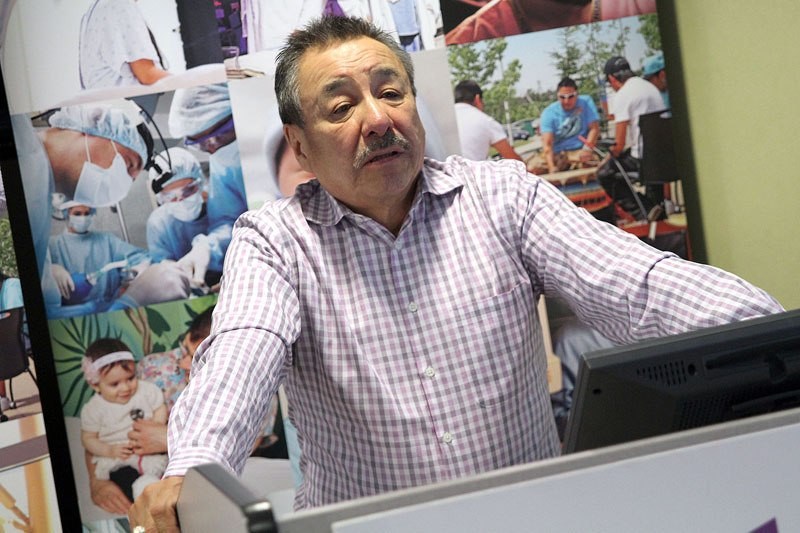Stan Beardy says where he comes from, there are no cancer survivors.
So when he, Ontario’s Regional Chief, was diagnosed last year with early stage colon cancer, he thought he’d been issued a death sentence.
Fortunately, said Beardy, who felt fine before taking the test, the cancer was caught early enough. He went for surgery, the growths were removed and six months later, he appears to be cancer-free.
It’s a tale not often heard in many remote, First Nations communities, including Beardy’s hometown of Muskrat Dam.
But it’s a story whose ending can change, he added.
It’s precisely for that reason why Beardy decided to go public with his story, the central inspiration in Early Detection: The Path to a Good Life (www.tbrhsc.net/GoodLife), an eight-minute awareness video aimed at Aboriginal men and women living in communities throughout Northwestern Ontario.
“I didn’t know what it meant when my doctor said it doesn’t look good,” Beardy said Monday at Thunder Bay Regional Health Sciences Centre where the video was given its first public showing.
The video is a start, he added.
Using straightforward language accented with simple diagrams, he’s hoping it helps Aboriginal people understand not only why it’s important to get tested for various types of cancer, but convinces them to take action.
And it shows them different ways to make it happen.
“There’s a lot of apprehension of the unknown,” Beardy said. “People don’t know what to expect. They have no clue what to expect when they come to the hospital. They don’t know what kind of treatment they will get.”
The numbers don’t lie.
Cancer is the third leading cause of death in Northern Ontario men, at 18 per cent.
It’s the second-leading killer of women, at 25 per cent. That’s for the population as a whole.
Aboriginals, many of whom live in communities where access to health care is limited, face much higher cancer mortality rates.
Thunder Bay Regional Health Sciences Centre general surgeon Harshad Telang applauded Beardy for becoming the face of cancer screening for Ontario’s North – which ultimately could spread nationwide.
“It’s vitally important. We see a lot of Native patients coming from remote communities with advanced cancers, who haven’t been screened, when at an earlier point it could have potentially saved their life,” Telang said.
Men and women older than 50, at average risk, should be tested for colorectal cancer every two years using a fecal occult blood test.
Women older than 50 should have a routine mammogram every two years, while sexually active women 21 and older should have a pap test screen for cervical cancer every three years.
